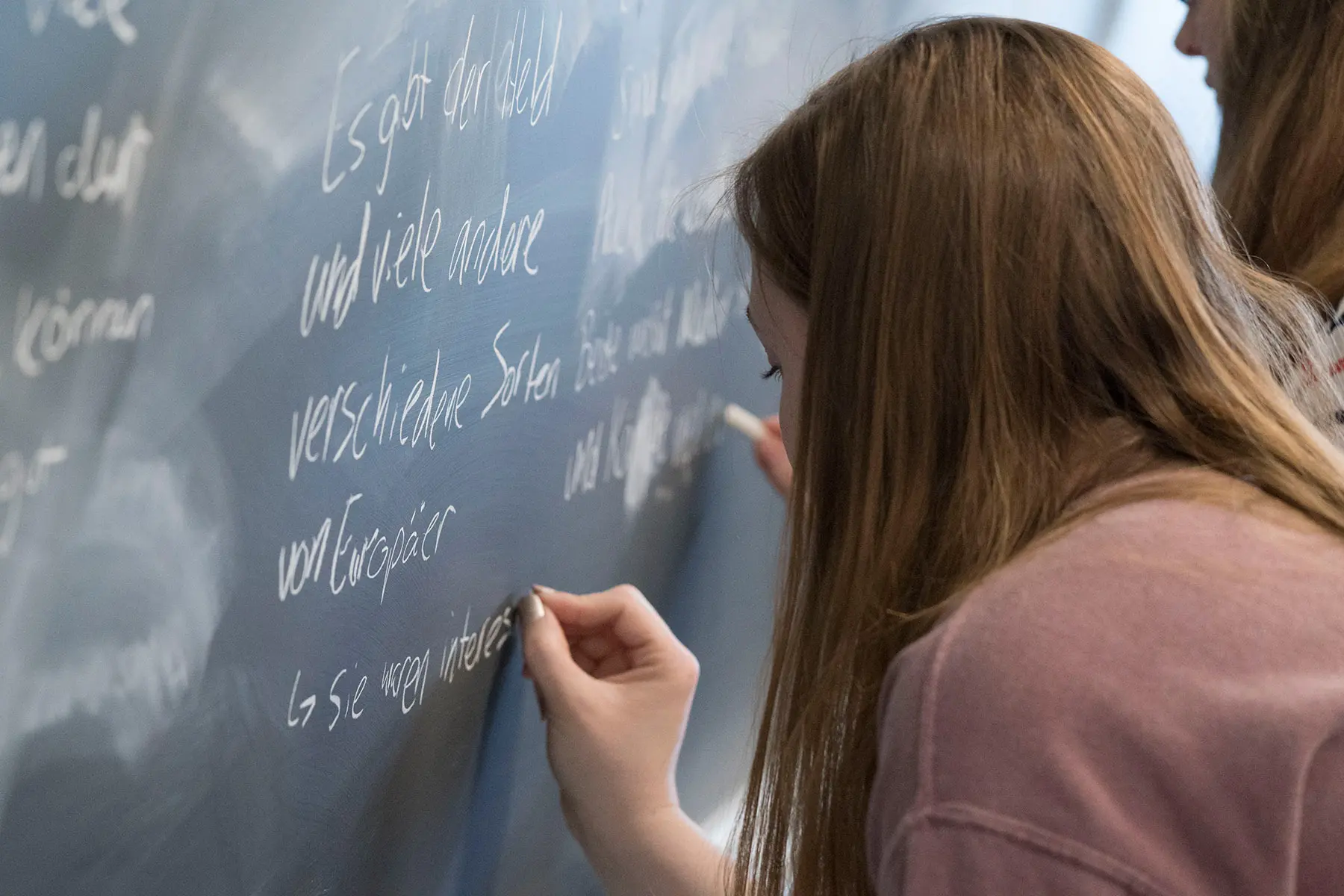Learn More About the Concentration
The concentration in applied German will provide you with skills to boost your career. Learning a new language also helps you to expand your intercultural awareness—a capability that will serve you in your personal life as well as your work.
This concentration can be completed in three or four years, even if you have not studied German before.
Minimum of 18 credit hours above the 100-level, including,
- GMN 201: Language and Culture in the German-speaking World—Intermediate Level I (3 credits)
- GMN 202: Language and Culture in the German-speaking World—Intermediate Level II (3 credits)
Waived for students who place higher based on placement test, who transfer equivalent course credit, or who earn a 4 or 5 on the AP German exam.
Two semesters of GMN 300 (6 credits, repeatable for credit):
- GMN 300: Advanced Applied German (3 credits). Prerequisite: GMN 202 or placement test.
Six credits from the following:
- GMN 305: Independent Summer Study in Würzburg, Germany (4–8 credits)
Fall or spring term with LVC’s semester-long program in Berlin, Germany (8–12 credits)
An approved study abroad program of at least four weeks in a German-speaking country
- GLB 101: Crossing Borders: Globalization (3 credits)
- SOC 240: Diversity and Intercultural Communication (3 credits)
Contact Dr. Jörg Meindl, associate professor of German, at meindl@lvc.edu, or Dr. Rick Chamberlin, associate professor of French and German, at chamberl@lvc.edu to learn more.



